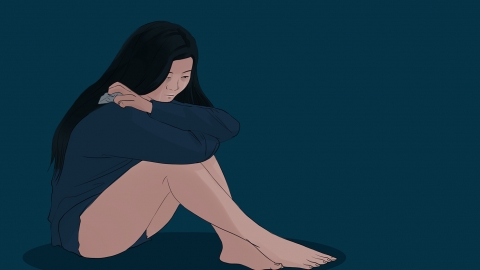What should I do if I feel depressed after a breakup?
Generally, feeling depressed after a breakup may be caused by neurotransmitter fluctuations, irregular sleep patterns, emotional trauma stress, adjustment disorders, or depressive episodes. It is recommended to seek medical attention promptly, identify the underlying cause, and then improve symptoms under a doctor's guidance through psychological regulation, medication, and other methods. Specific causes are analyzed as follows:

1. Neurotransmitter fluctuations: A breakup can disrupt the balance of serotonin and dopamine secretion, directly leading to low mood. Engaging in 30 minutes of jogging or skipping rope daily helps promote neurotransmitter release. Additionally, consuming foods rich in amino acids—such as bananas and walnuts—can aid in regulating mood.
2. Irregular sleep patterns: Insomnia or late-night habits following a breakup become common, preventing proper neural recovery and worsening depression. Maintain a consistent bedtime before 11 p.m. each night, turn off electronic devices one hour before sleeping, and create a sleep-friendly environment using warm milk and aromatherapy to ensure seven hours of rest.
3. Emotional trauma stress: The rupture of an intimate relationship causes psychological trauma, resulting in persistent sadness. Talking about feelings with friends or family, journaling emotions, or joining interest-based social groups can help shift focus and gradually reduce excessive rumination on the past.
4. Adjustment disorder: Difficulty adapting to changes in lifestyle may lead to depressive moods and social withdrawal. Follow medical advice to use medications such as oryzanol tablets, vitamin B1 tablets, or Anshen Bunao Liquid, combined with supportive psychotherapy to adapt more quickly to life changes.
5. Depressive episode: A breakup may act as a trigger for clinical depression, characterized by loss of interest and complete lack of energy. Patients should follow medical guidance to take medications such as sertraline hydrochloride tablets, escitalopram oxalate tablets, or mirtazapine tablets, along with cognitive behavioral therapy to improve their condition.
In daily life, avoid dwelling on past memories when alone; instead, actively participate in outdoor activities and connect with nature. Maintain a light and balanced diet, and refrain from using alcohol or binge eating to cope with emotions. Through scientific self-regulation, gradually overcome emotional lows and rebuild a structured, healthy life.




